When it comes to breastfeeding, ensuring your baby’s comfort and health is a top priority for many new mothers. For those with little ones experiencing acid reflux, navigating the world of food choices can feel overwhelming. What you eat can significantly impact your baby’s well-being, especially if they are prone to gastrointestinal discomfort. In this article, we’ll explore the foods that breastfeeding mothers should consider avoiding to help soothe their babies’ acid reflux symptoms. Our aim is to provide you with friendly, practical tips to make mealtime easier for both you and your little one. Let’s dive into the dietary adjustments that can foster a more peaceful feeding experience for you and your baby!
Understanding Acid Reflux in Breastfed Babies
Acid reflux is a common issue among breastfed babies, often characterized by uncomfortable symptoms like spitting up, irritability, and feeding difficulties. While it is crucial to consult a pediatrician for proper diagnosis and management, breastfeeding mothers can play a vital role in alleviating their baby’s discomfort through dietary adjustments. Recognizing which foods may exacerbate acid reflux can make a significant difference for both mother and child.
There are several foods that breastfeeding mothers should consider avoiding to help minimize the symptoms of acid reflux in their babies. These include:
-
- Spicy foods: High levels of spices can irritate the baby’s digestive system.
-
- Citrus fruits: Oranges, lemons, and limes are acidic and may contribute to reflux symptoms.
-
- Tomato-based products: Such as sauces and soup, which can be highly acidic.
-
- Chocolate: Contains caffeine and other components that may trigger reflux.
-
- Fried and fatty foods: These can slow digestion and increase the likelihood of reflux.
Keeping a food diary can be particularly helpful for breastfeeding mothers. By tracking food intake and observing any changes in the baby’s symptoms, mothers can identify specific triggers more effectively. In some cases, the timing of meals can also play a role—eating smaller, more frequent meals throughout the day may reduce the likelihood of reflux symptoms in breastfed babies. Maintaining a balanced diet while avoiding problematic foods not only supports the health of the infant but also ensures that the mother stays nourished and energized.
Identifying Trigger Foods That May Aggravate Symptoms
When nursing a baby with acid reflux, it’s essential to closely monitor your diet. Certain foods can exacerbate reflux symptoms in your little one, leading to discomfort and restlessness. To help identify these trigger foods, it’s beneficial to keep a food diary. You can track everything you eat and note any changes in your baby’s behavior, which can reveal patterns that point to specific foods. This practice not only empowers you but also creates a better understanding of how different foods may affect your baby.
Common culprits include items that are known to relax the lower esophageal sphincter or increase stomach acidity. Consider avoiding or limiting the following:
-
- Spicy foods
-
- Tomato-based products
-
- Citrus fruits
-
- Chocolate
-
- High-fat foods
-
- Caffeinated beverages
-
- Dairy products
Additionally, it may be useful to pay attention to your intake of certain allergens, as some babies can be sensitive to proteins in foods such as soy, nuts, or eggs. To visualize this better, here’s a quick reference table of common trigger foods and their potential effects:
| Food | Potential Effect |
|---|---|
| Spicy Foods | Increases heartburn and acid |
| Tomato Products | Can lead to digestive discomfort |
| Dairy | Possible allergy or intolerance reactions |
Nutritional Alternatives for Breastfeeding Moms
For breastfeeding moms, finding the right nutritional alternatives can make a significant difference in both their well-being and their baby’s comfort, especially when it comes to managing acid reflux. Instead of common staples that may trigger reflux, consider incorporating these gentle yet nutritious options into your diet:
-
- Oatmeal: A warm bowl of oats can be soothing and is rich in fiber, keeping both you and your baby satisfied.
-
- Lean proteins: Skinless chicken, turkey, and fish provide essential nutrients without adding too much fat, which can aggravate reflux.
-
- Fruits and vegetables: Opt for non-citrus choices such as bananas, apples, and leafy greens, which are less likely to cause discomfort.
-
- Whole grains: Quinoa and brown rice are excellent alternatives that are easy to digest.
Another consideration for breastfeeding moms is the incorporation of healthy fats that can support overall health while minimizing reflux symptoms. Instead of heavy oils or dairy, try these alternatives:
| Healthy Fats | Benefits |
|---|---|
| Avocado | Rich in monounsaturated fats and fiber. |
| Nuts and seeds | Provide essential fats and are easy to snack on. |
| Olive oil | A great alternative for cooking and dressings. |
Hydration is equally important, so breastfeeding moms should focus on mild beverages that are less likely to cause reflux. Consider sipping on:
-
- Herbal teas: Chamomile or ginger tea can be soothing to both mom and baby.
-
- Water-infused with mild fruits: Try cucumber or mint for a refreshing drink.
-
- Broths: Homemade vegetable or chicken broth can be nourishing without being heavy.
Tips for Maintaining a Balanced Diet While Avoiding Certain Foods
When navigating a breastfeeding journey with a baby suffering from acid reflux, maintaining a balanced diet while being mindful of certain foods is crucial. It’s essential to focus on nutrient-dense options that promote healing and comfort for your little one. Prioritize incorporating plenty of **fruits**, **vegetables**, and **whole grains** into your meal plan. These foods are not only beneficial for your overall health but also rich in fiber, which can aid digestion and prevent constipation.
While avoiding specific trigger foods, pay attention to the ingredients in your meals. Eliminate items that can exacerbate your baby’s acid reflux symptoms, such as:
-
- Spicy foods
-
- Citrus fruits
-
- Tomato-based products
-
- Fried and fatty foods
-
- Chocolate
-
- Caffeine
By excluding these foods, you can help ensure a more comfortable breastfeeding experience for your child. Instead, consider incorporating soothing alternatives into your diet. For example, opt for baked or grilled proteins, creamy nut butters, and mild grains.
It can also be beneficial to monitor portion sizes and eating patterns. Smaller, more frequent meals can help mitigate any potential discomfort for both you and your baby. Below is a simple table to help you remember some healthy alternatives that can easily replace common trigger foods:
| Trigger Food | Healthy Alternative |
|---|---|
| Spicy Foods | Mildly seasoned dishes |
| Citrus Fruits | Bananas or apples |
| Fried Foods | Steamed or baked options |
| Chocolate | Cocoa-free treats |
| Caffeinated Beverages | Herbal teas |
Q&A
Q&A: Foods to Avoid When Breastfeeding a Baby with Acid Reflux
Q1: What is acid reflux, and how can it affect my baby?
A1: Acid reflux occurs when stomach contents flow back into the esophagus, leading to discomfort, spitting up, and fussiness in babies. If your little one is experiencing symptoms like frequent spitting up, irritability during feedings, or difficulty sleeping, they might be dealing with acid reflux. Breastfeeding mothers can sometimes influence their baby’s symptoms through their diet.
Q2: Are there specific foods I should avoid while breastfeeding to help minimize my baby’s acid reflux?
A2: Yes! Certain foods can exacerbate acid reflux in breastfed babies. Here are some common culprits to consider avoiding:
-
- Dairy Products: Milk and cheese can lead to increased mucus production and may contribute to reflux symptoms.
-
- Caffeine: Found in coffee, tea, and chocolate, caffeine can overstimulate your baby and worsen reflux.
-
- Spicy Foods: Spices can irritate your baby’s digestive system, potentially increasing acid reflux symptoms.
-
- Citrus Fruits: Oranges, lemons, and other citrus fruits can be acidic and might lead to discomfort.
-
- Tomato-Based Products: Foods like ketchup, marinara sauce, and salsa can be too acidic for babies with reflux.
-
- Fatty Foods: High-fat meals can delay stomach emptying, increasing the likelihood of reflux.
-
- Garlic and Onions: These can be particularly gassy and might upset your baby’s stomach.
Q3: How will I know if a food is causing my baby’s acid reflux to worsen?
A3: Keeping a food diary can help you identify patterns between what you eat and your baby’s symptoms. Note your meals and any noticeable changes in your baby’s behavior, such as increased fussiness, spitting up, or discomfort. If you suspect a particular food is the problem, try eliminating it for a few weeks and observe if there’s an improvement.
Q4: Are there safe foods I can enjoy while breastfeeding?
A4: Absolutely! Many delicious options can help nourish you and are generally safe for your breastfed baby. Consider incorporating:
-
- Lean Proteins: Chicken, turkey, and fish can provide essential nutrients without contributing to reflux.
-
- Whole Grains: Oats, quinoa, and brown rice are nutritious and easy on digestion.
-
- Fruits and Vegetables: Non-citrus options like bananas, apples, pears, and leafy greens are great choices.
-
- Healthy Fats: Avocado and nut spreads (if no nut allergies) can be beneficial.
Q5: Should I consult a healthcare professional if my baby has acid reflux?
A5: Yes, it’s a good idea to consult your pediatrician or a lactation consultant if you have concerns about your baby’s acid reflux. They can provide personalized advice tailored to your baby’s needs and help you develop a feeding strategy that works for you both.
Q6: Is it necessary to completely eliminate these foods from my diet?
A6: Not necessarily! Some mothers find that they can tolerate small amounts of certain foods without any issues. It’s all about finding a balance and listening to your body and your baby. Gradually eliminating and then reintroducing foods can help you understand what works best for you both.
Q7: Can I enjoy occasional treats or indulgences?
A7: Moderation is key! If you want to enjoy a favorite food that may cause reflux, try consuming it in small portions and observe your baby’s response. It’s all about finding a balance that keeps both you and your baby comfortable.
We hope this Q&A helps guide you in managing your diet while breastfeeding a baby with acid reflux. Remember, every baby is unique, so it may take some time to find what works best for you both!
To Wrap It Up
navigating the world of breastfeeding while managing your baby’s acid reflux can feel overwhelming, but with the right knowledge, you can help make the journey smoother for both you and your little one. By being mindful of the foods you choose to eat, you can potentially reduce your baby’s discomfort and promote a more peaceful feeding experience. Remember, everyone’s body is different; it may take some trial and error to discover which foods work best for you and your baby. Don’t hesitate to consult with a healthcare professional or a lactation consultant for personalized advice tailored to your specific situation. Above all, trust your instincts and know that you’re doing a great job. Happy feeding!


